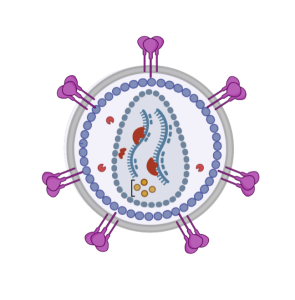Protein homeostasis and the role of proteasomes
In our bodies, proteins play key roles in various biological functions. Maintaining protein balance, also known as protein homeostasis, is crucial for the normal function of cells. When proteins cannot fold properly or are damaged, they may accumulate and interfere with cellular function, leading to various diseases, including cancer, neurodegenerative diseases, and immune metabolic disorders.
There are two main protein degradation systems within cells: the ubiquitin proteasome system (UPS) and the autophagy lysosome pathway (ALP). Among them, UPS is the main protein degradation pathway responsible for degrading short-lived, misfolded, or damaged proteins.
Discovery and application of proteasome inhibitors
In the past two decades, three proteasome inhibitors have been approved for the treatment of hematological malignancies, including bortezomib, cabozomib, and isazomi. These inhibitors work through different mechanisms, including blocking proteasome activity, thereby inhibiting the proliferation of cancer cells.
In addition to synthetic proteasome inhibitors, natural products are also an important source of candidate anticancer drugs. For example, epigallocatechin gallate (EGCG), quercetin, and terpenoids such as apigenin and huperzine A have been shown to have proteasome inhibiting activity.
The mechanism of action of proteasome inhibitors
Proteasome inhibitors induce cell apoptosis through various pathways. They can cause endoplasmic reticulum (ER) stress and oxidative stress, activate the NF – κ B signaling pathway associated with tumor growth, and affect cell cycle regulation.
Proteasome inhibitors in cancer treatment
Small molecule proteasome inhibitors have shown great potential in cancer treatment. They inhibit the activity of proteasomes by forming reversible or irreversible covalent compounds with their active sites.
At present, some new proteasome inhibitors are undergoing clinical trials, such as marizomab and oprozomib, which demonstrate their efficacy in treating multiple myeloma (MM) and relapsed/refractory multiple myeloma (RRMM).
Conclusion and Outlook
Despite the success of proteasome inhibitors in the treatment of hematological malignancies, their application in the treatment of solid tumors still faces challenges. Drug resistance and serious side effects are the main issues in current clinical applications.
To overcome these challenges, it has become particularly important to develop novel proteasome inhibitors with different targets. Natural products, as a source of drug discovery, demonstrate enormous potential as next-generation proteasome inhibitors.
Inspired by the UPS function, targeted protein degradation induced by proteasome targeted chimeras (PROTACs) provides new possibilities for drug discovery and may bring significant therapeutic benefits.
drug discovery anti-viral drug screening
Research and development of antiviral drugs
Which company is good for protease inhibitors
TMPRSS2


